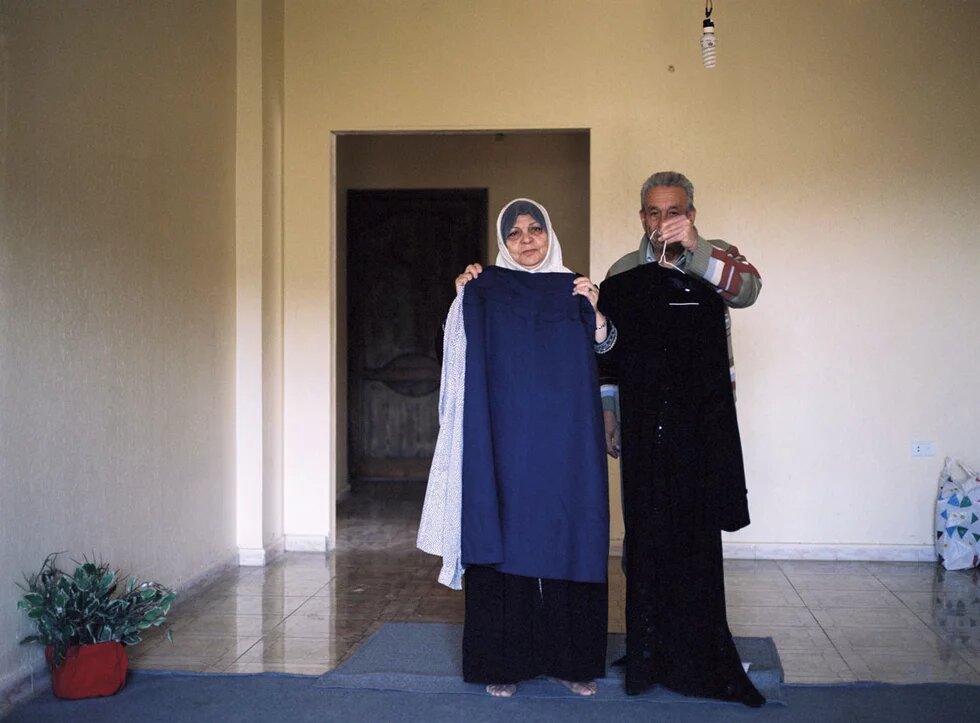
When we left Syria we did not bring anything. I do not even remember thinking of anything except for the passports and official papers, even though we owned a lot. Our house was filled with things, it was fully furnished. But when things start closing in on you, you can only think of yourself and your safety. This is how we left: taking only our IDs and the few photos that my husband had. And I just brought the clothes I was wearing that day. Only what I had on me.
I am from Homs. Together with my family, I decided to leave after seeing the destruction that came upon our homes on a daily basis and what was happening to the children who had lost their parents. Two of my children died in Homs. Fearing that I could lose another we left. It was a collective migration movement. Some people went to Idlib, others to Jordan.
My family went to a village called al-Ghontok where we stayed for approximately 16 months. Unfortunately, the fate of this village was not much different from what we had witnessed before in Homs. The shelling became worse. This time I was hit and wounded: One day a rocket struck the house we were staying in and burst through the wall. It shattered the wall, which fell down on top of me. I was wounded in the arm and leg, and I had to undergo surgery. It demanded that they take a piece of bone from my foot to replace the one in my hand. They were trying to make it look and function normally. Today, 2 years after the operation, it is healed but I still cannot completely fold my hand and it hurts from time to time. After the heavy shelling on al-Ghontok my husband lost his hearing and the children were in bad shape, panicking and worrying every time the strikes became stronger. We decided to move again. This time we chose Lebanon and more precisely the city of Tripoli. We made a few phone calls to find out about the possibilities for our crossing through the border; we spoke to someone and we agreed on a price. We did not have much money but we were able to gather the required amount. On the way we passed through Talbissa and many other villages. In one of these villages the driver told all the women to cover their faces because we were about to arrive in a town controlled by Daesh. If any of them saw a woman with her face uncovered they would beat her up and humiliate her, or even kill her. I was shocked. It was this kind of violence that we were escaping from in the first place. My son’s widow and I covered our faces. From that town we went to another one called Tal Omri, where a bigger car loaded with passengers took us to Al ‘Obdeh Square.
After staying with an acquaintance for several days we were able to rent a little house. It was in bad condition since it had no doors. After about a month and a half in such rough conditions our situation got much worse. The rent was more than we could afford. Someone told us about a lady known for helping Syrians. We went to her asking for help and she told us that she would do her best. A few days later she had found shared housing in Koucha for us. We immediately moved and so far we have been here in Koucha for about 8 months.
You can say that our bodies - our physical bodies - are here but our thoughts are there, with our memories. One can never feel comfortable living outside of one’s house and country, and today we live in sadness and moodiness. Still, we always thank God for what we have because there are people whose situation is worse than ours. We used to tell ourselves “Poor Palestinians, they were displaced.” But now we are in a worse situation. It is worse even though Syria was the mother of the poor, and it is the mother of strangers. We had everything we needed, thank God. People of Syria are endlessly good. In the end all we can do is pray to God that this whole situation comes to an end so we can go back home.
---